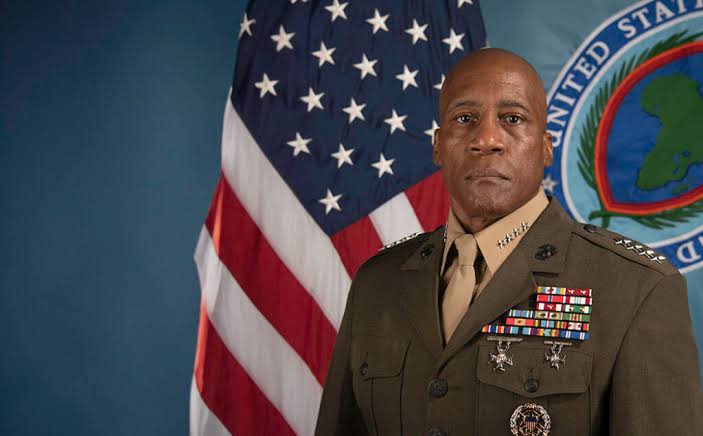General Michael Langley, the Commander of the United States Africa Command (AFRICOM), has raised an alarm over the growing efforts by extremist groups in the Sahel to access West Africa’s coastline. This development poses severe security risks to African nations and U.S. interests in the region.
General Langley described recent terrorist activities in Nigeria, the Sahel, and the Lake Chad Basin as alarming. He warned that if terrorists gain control over coastal areas, it would significantly boost their ability to smuggle goods, traffic arms, and fund their operations through illegal activities.
Langley identified Mali, Burkina Faso, and Niger as the hotspots for terrorism in the region. Terrorist groups linked to ISIS and Al-Qaeda are particularly active in Burkina Faso. The 2025 Global Terrorism Index revealed that the Sahel accounted for 19% of global terrorist incidents and 51% of terrorism-related deaths in 2024.
Speaking at the African Chiefs of Defence Conference in Nairobi, Kenya, Langley noted the increasing threat of extremist groups expanding their reach to coastal areas. He explained that such access would open new channels for smuggling, human trafficking, and arms trading, posing threats to both African nations and the United States.
Langley urged coastal nations like Ghana, Côte d’Ivoire, and Benin to stay vigilant along their northern borders to prevent terrorist infiltration. He reaffirmed U.S. support for these nations, emphasizing the importance of blocking terrorist expansion.
Acknowledging that the U.S. has reduced its presence in some parts of Africa, Langley reassured that America remains committed to counterterrorism efforts. He emphasized that AFRICOM respects national sovereignty and operates only where invited, aligning with U.S. security interests.
Reflecting on his visit to Nigeria in November 2024, Langley discussed U.S. support for Nigeria’s fight against Boko Haram and ISIS West Africa. He praised Nigeria’s military as one of the most capable in the region and highlighted ongoing cooperation.
Despite strained relations with Burkina Faso, Langley expressed hope for dialogue and collaboration. He mentioned extending an invitation to Burkina Faso’s Chief of Defence to attend the Nairobi conference, keeping the door open for future engagement.
Langley also shared updates on AFRICOM’s intensified airstrikes in Somalia, conducted at the Somali government’s request. Over 25 airstrikes were carried out this year, double the number from last year.
General Langley commended African militaries for leading efforts to address their security challenges. He stressed AFRICOM’s mission of empowering partners rather than creating dependency, aiming to build sustainable solutions for peace and security.
AFRICOM’s efforts go beyond military capacity-building to address the root causes of terrorism, such as local instability. Langley highlighted the importance of joint exercises, capacity building, and intelligence sharing to ensure long-term stability in Africa.
In his closing remarks, Langley emphasized that strong partnerships are the foundation of AFRICOM’s mission. He affirmed that collaboration with African nations is vital for a safer, more stable, and prosperous continent.







